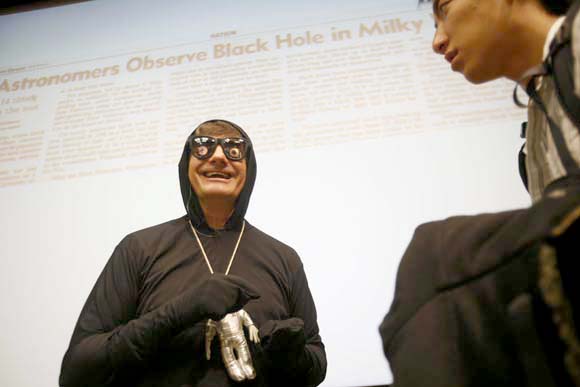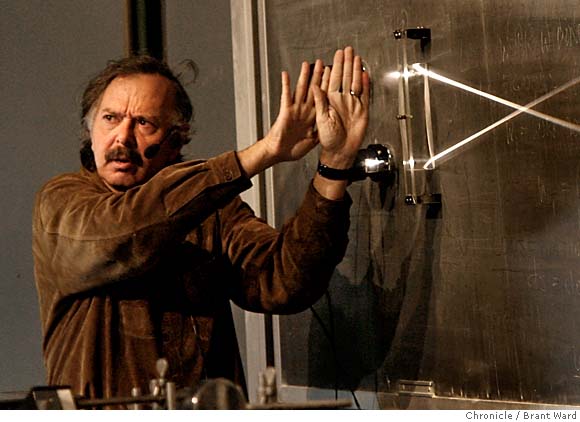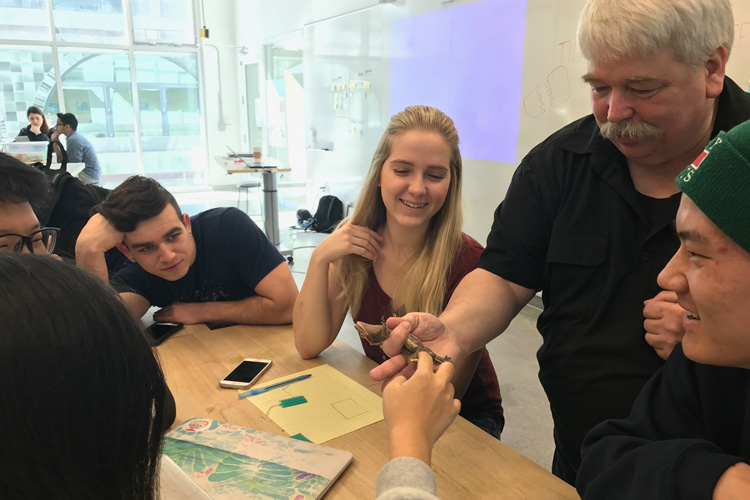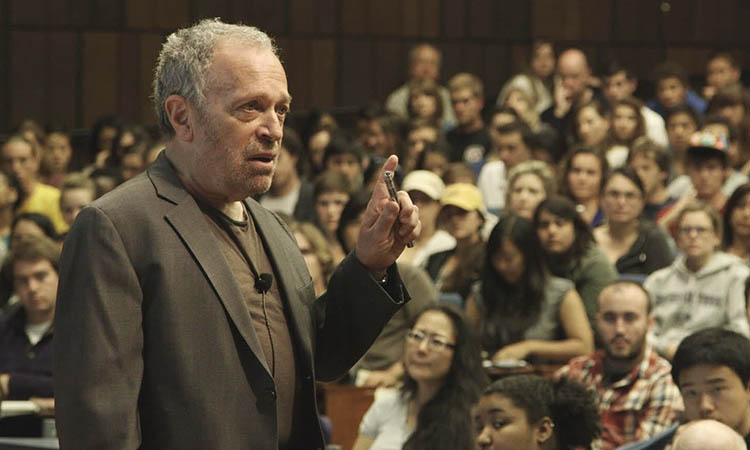The L&S Discovery Courses program was launched in 2005 under the leadership of then Dean Robert Holub. The program showcased courses ideally suited to fulfill the L&S seven-course breadth requirement in engaging ways.
Outstanding teachers among the faculty were recruited to teach in the program; there was no open call for proposals. These legendary courses included Alex Filippenko’s Intro to General Astronomy, Rich Muller’s Physics for Future Presidents, Stephen Booth’s The Value of Poetry, David Presti’s Drugs and the Brain, Dacher Keltner’s Human Happiness, and Robert Reich’s Wealth and Poverty. After twenty extraordinary years, the program was sunset in 2025.
The L&S Discovery Course program was administered by the College of Letters & Science’s Division of Undergraduate Studies and served students in all colleges and schools across the UC Berkeley campus. The program was generously supported in part by donors to the L&S Leadership Fund.

About
We launched the Letters & Science Discovery Courses in fall 2005, with the goal of providing courses ideally suited to fulfill the L&S seven-course breadth requirement in engaging ways. At that time there were literally thousands of classes that fulfilled breadth, but many of those had not been designed with breadth in mind. Many were meant to be the first course in a series for intended majors, or they were upper-division courses with prerequisites, for instance. There was no good way for a student seeking a high-quality breadth experience to choose wisely among the bewildering options.
In order to guarantee a high-quality breadth experience, we decided on two primary criteria for the courses:
- They would be designed explicitly for non-majors. By this we mean that everything a student would need to know would be contained within the course—there would be no prerequisites. Also, the course should be engaging to students with no necessary prior interest in the particular breadth category. In practice this often meant that the course was interdisciplinary, bridging between something students were interested in and something they were not sure they were interested in. Finally, if this turned out to be the only course a student took in the given breadth category, that student could consider themselves an educated citizen in that arena, ready to make decisions, weigh evidence, and think clearly about related issues.
- They would be taught by our best teachers. The premise here is that our best teachers can make any subject interesting and engaging to any students. In the program’s first year, nine of the twenty-one L&S Discovery Courses were taught by recipients of the campus’ coveted Distinguished Teaching Award.
Students want to learn from the very best people. The Discovery Courses enable them to do just that, to have a tremendous educational experience from someone who is an expert and someone who is a distinguished teacher in their area.
— Dean Robert Holub, Undergraduate Division
Some Discovery Courses pre-dated the launch of the program: these were courses already designed for non-majors and taught by our best instructors, courses like Alex Filippenko’s Intro to General Astronomy or Rich Muller’s Physics for Future Presidents. In these cases we invited the instructors to the program and began funding extra graduate student instructors so they could seat more students. In other cases we approached excellent teachers and invited them to create their dream course for non-majors. In this way, for instance, we recruited Stephen Booth to teach The Value of Poetry: as he put it, English majors already knew the value of poetry—he wanted to reach everyone else. These were instructors who had what our founding dean, Robert Holub, called “a missionary zeal.”

College should be a place where you discover, where you get exposed to a zillion different things. And you don't know enough of the world to know what's going to excite you. Discovery Courses are all about giving the students a broad education.
— Richard Muller, Physics
Every L&S Discovery Course had an L&S course number, and many were cross-listed with the home department of the instructor. The course numbering system reflected the courses’ focus on breadth:
- 20 and 120: Arts and Literature
- 30 and 130: Biological Science
- 40 and 140: Historical Studies
- 50 and 150: International Studies
- 60 and 160: Philosophy and Values
- 70 and 170: Physical Science
- 80 and 180: Social and Behavioral Sciences
Outstanding teachers among the faculty were recruited to teach in the program; there was no open call for proposals.
Our program supported the courses both with funding and with promotional efforts, including this website. Students came to rely on the program when they were in search of unforgettable breadth experiences.
Liberal arts education is like art. It's like poetry. It's something that is its own reward.
— Stephen Booth, English

